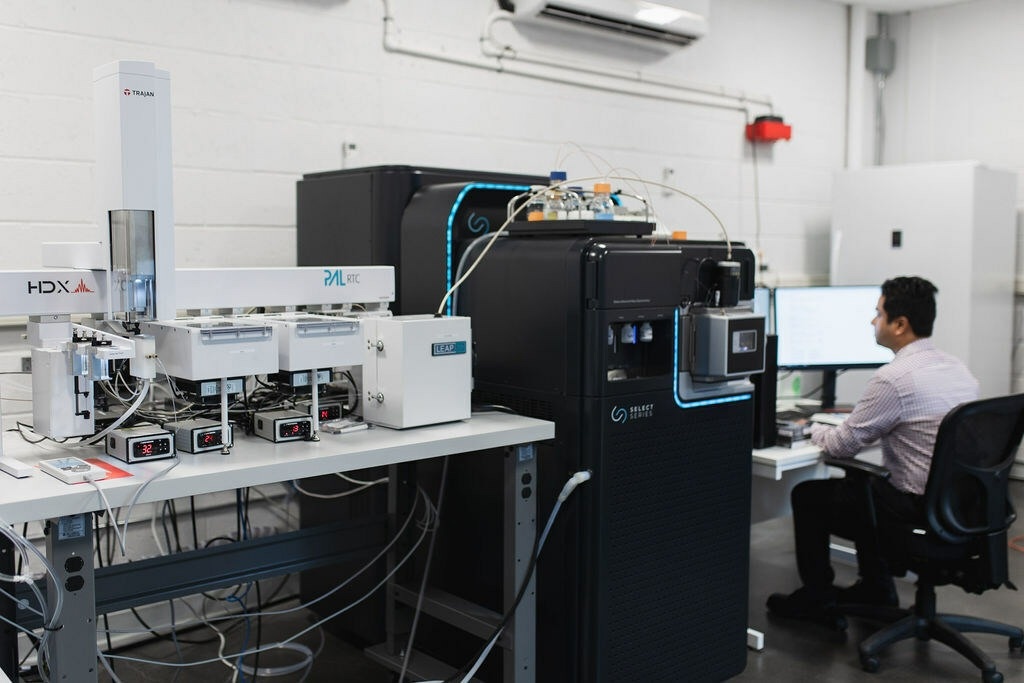Rapid Novor Inc. and MAbSilico announced that they have partnered to provide the world's first AI-driven HDX-MS epitope mapping service for antibody development. By seamlessly integrating experimental data from HDX-MS with predictive analytics derived from AI-driven computational modeling, researchers can gain a comprehensive understanding of antibody structure, dynamics, and interactions with unparalleled precision and speed.
 Scientist working on the HDX-MS platform utilizing Waters Cyclic IMS MS technology for advanced antibody epitope mapping analysis. Image Credit: RapidNovor
Scientist working on the HDX-MS platform utilizing Waters Cyclic IMS MS technology for advanced antibody epitope mapping analysis. Image Credit: RapidNovor
"Artificial intelligence promises a turning point in antibody drug discovery and development," states Iain Rogers, VP of Sales and Marketing at Rapid Novor. "By combining the robustness of HDX-MS with the predictive power of AI-driven computational modeling, we have developed a pipeline that can accelerate antibody discovery and characterization".
HDX-MS employed by Rapid Novor measures the exchange rate of amide hydrogen atoms to deuterium, when exposed to deuterium at different time points. By comparing the deuteration levels between bound and unbound states of the antibody-protein complex, the regions protected by antibody binding can be identified. "With our proteomics expertise" explains Dr. Dominic Narang, HDX-MS Manager and Senior Research Scientist at Rapid Novor, "We can identify epitopes on target antigens with exceptional resolution, down to 1 to 5 amino acids, providing researchers with valuable insights into antibody-antigen interactions"
Trained on data from 1 trillion antibodies, MAbSilico's proprietary algorithms predict the binding epitopes on target antigens using 3D structural models and docking-based methodologies. "Our predictive algorithms are the culmination of 15 years of protein modeling, AI and machine-learning research" states Thomas Bourquard, CSO at MAbSilico. "Our computational modeling accurately predicts epitope binding, and is always validated with in vitro testing." Additionally, their AI platforms conduct epitope binning to screen hundreds of antibody sequences against functionally relevant epitopes, and can also evaluate their developability.
The integration of AI-guided epitope mapping not only informs the design of in vitro experiments to target the most relevant regions of the antigen, but it also ensures the highest quality, confidence, and resolution in identifying binding sites for antibody-antigen interactions.
This AI-integrated approach enables rapid screening of antibodies from extensive candidate pools. This accelerates the pace of antibody discovery and development, ultimately leading to novel therapeutics with enhanced efficacy.
Zak Omahdi, Scientific Business Developer, MAbSilico